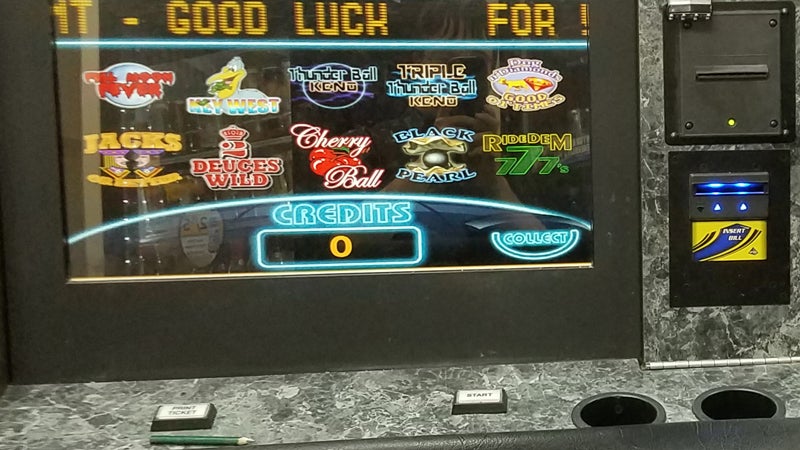Area lawmakers join colleagues in sending ‘skill game’ legalization bill back to Youngkin unchanged
Published 4:27 pm Monday, April 22, 2024

- Skill game machines are currently banned under a 2020 state law. (File photo)
Area lawmakers joined the majority in a 34-6 Virginia Senate vote on April 17 to reject Gov. Glenn Youngkin’s requested amendments to a bill seeking to overturn the state’s ban on so-called “skill games.”
The vote means the bill will return to Youngkin unchanged for either his signature or veto.
Youngkin spokesman Christian Martinez didn’t specify a deadline for Youngkin to act on the original bill, but noted the governor is open to negotiation on its final language.
Senate Bill 212, sponsored by Sen. Aaron Rouse, D-Virginia Beach, proposes to repeal a 2020 law that had reclassified the pay-to-play machines as illegal gambling, and instead tax them. Prior to the current ban, the slots-style betting machines were a common sight in convenience stores and truck stops.
Youngkin, on April 8, had sent the bill back to the Senate with proposed revisions that would allow localities to opt out of skill game legalization via a ballot referendum and would explicitly prohibit the machines within 35 miles of any casino or racetrack – a provision that, if approved, would keep the machines illegal throughout Isle of Wight and Surry counties. Isle of Wight, even at its southernmost and westernmost borders, is within the 35-mile radius of Rivers Casino in Portsmouth, while most of Surry is within a 35-mile radius of Colonial Downs in New Kent County.
Rouse’s bill, prior to Youngkin’s amendments, passed the Senate 32-8 in February and passed the House of Delegates 51-45 in March. When a governor proposes amendments to a bill, it returns to the legislative chamber where it originated.
“In regard to skill games, I have serious concerns with the bill and I had them before,” Youngkin said on April 18. “The package of amendments that I put together, addressed those concerns. I also want to be clear that I am open to discussing particularly the issues with the perimeter policies. I think we can address that and that will go a long way to helping folks get to a common ground here.”
If the bill, dubbed the Virginia Small Business Economic Development Act, becomes law, it would authorize the Virginia Alcoholic Beverage Control Authority to begin issuing provisional registration to skill-game distributors, operators and host establishments in July and would direct the Virginia Lottery Board to develop regulations by Jan. 1, 2027, governing the machines’ use.
Sen. Lashrecse Aird, D-Petersburg, whose legislative district includes Surry, and Sen. Emily Brewer, R-Isle of Wight, each joined the majority in the February vote and in voting on April 17 to send the bill back to Youngkin unchanged. Both, as former delegates, had previously voted in favor of the statewide ban when it passed the House in 2020 as HB 881.
Isle of Wight only began enforcing the ban this January after a three-year legal battle ended last fall with Virginia’s Supreme Court lifting an injunction against enforcement. Emporia truck stop owner Hermie Sadler, who ran against Jordan in a Republican primary last year for her Senate seat, had sued the state in 2021 just as the 2020 ban would have taken effect, arguing the ban gave an unfair advantage to the handful of casinos the state had authorized to operate in Virginia’s larger cities. He secured the now-lifted injunction in Greensville County Circuit Court in 2022 with the help of his attorney, state Sen. Bill Stanley, R-Franklin County.
Pace-O-Matic, a skill-game software developer that had championed Sadler’s cause, contends Virginia is missing out on an estimated $100 million by banning rather than taxing the slots-style machines, while the American Gaming Association, a casino industry lobbyist, contends the machines lack the same consumer protections required of casinos.





